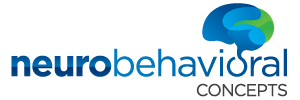What is it?
What to look for
Causes
Diagnosis
Treatment
Treatment for dyslexia focuses on developing learning strategies for the child, compensating for her weaknesses so she can close the educational gap with peers. Though there are no pharmacological therapies for dyslexia, medication is used to treat conditions that are often diagnosed alongside dyslexia, and can improve the effectiveness of treatment.
Educational: Treatment can involve specially structured learning strategies, with help from teachers, parents, specially trained psychologists, and learning or reading specialists. Many approaches involve multisensory instruction—since your child has trouble comprehending writing with her eyes and ears alone, other senses like touch, even taste and smell can play a role. Treatment will first address the symptoms of the disorder, teaching your child how to read—not intuitively, as most do, but as a rule-based system. Then, your child and her therapist will develop compensatory skills for learning in general. Individualized attention and instruction is critical, and schools often allow extra time on tests and other accommodations for students diagnosed with dyslexia. Dyslexia is a lifelong condition, but children with dyslexia can learn to read, and can, with the right help, accomplish as much as other children.
Other disorders to look out for
Frequently asked questions
Yes, though they may never read as efficiently and effectively as people without the disorder.
Are there tests for dyslexia?
A trained professional knowledgeable in the field of reading disorders can employ a variety of tools when making an assessment, including tests of vocabulary, naming, sound sequencing, and reading fluency, among a host of others. But like many childhood psychiatric disorders, there is no blood test for dyslexia, and a brain scan will not reveal the presence of the disorder.
Is there medication for dyslexia?
No.
Can my child with dyslexia go to college?
Definitely. No one should pretend that reading is ever easy for a child with dyslexia, but the strategies your child learns in therapy will allow her to study whatever she wants, at whatever level she pleases.
Does dyslexia only affect kids when they’re in school?
No. Kids with dyslexia don’t just have trouble reading books—the disorder can also interfere with reading music or learning a foreign language. As one of our clinicians puts it, “English is their foreign language.”
Will my child outgrow dyslexia?
No. Dyslexia is a lifelong condition. But that doesn’t mean your child will never read, or can’t accomplish as much as other children.
Will my child need special education?
Maybe. Depending on the nature and extent of your child’s case, a specialized school environment with more intensive support could be extremely beneficial. On the other hand, if her dyslexia can be managed well enough through therapy, there is no reason she should need additional specialized support in school.



